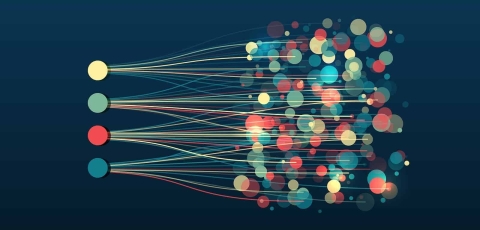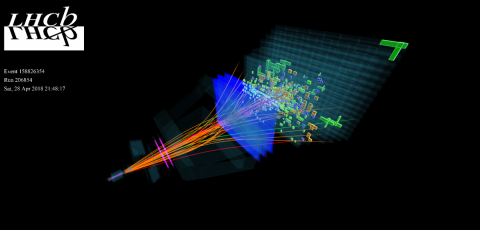Trigger
Triggering in ATLAS in Run 3
The ATLAS collaboration recently celebrated its 30th anniversary following the submission of the experiment’s Letter of Intent in 1992 and has accomplished great achievements during these years. However, it is still a young experiment, with only 6%…
Read moreSystem-on-Chip in Particle Physics Experiments
Many experiments in particle physics use custom-built electronics boards in order to perform event triggering and data readout. For many years now, those electronics boards have been using Field-Programmable Gate Arrays (FPGAs) for processing data.…
Read moreLHCb adopts GPUs in Run 3 trigger
The LHCb experiment is currently being upgraded to continue its study of beauty and charm hadrons at a five times higher instantaneous luminosity in LHC Run 3 that is now set to start in 2022. At the increased luminosity, these hadrons are produced…
Read moreUpgrading the LHCb trigger system
The LHCb experiment is undergoing a significant upgrade during LS2 in order to allow it to run at a five times higher instantaneous luminosity in LHC Run 3. In order to deal with the corresponding increase in pileup per bunch crossing, most of the…
Read moreATLAS trigger system meets the challenges of Run 2
The trigger system is an essential component of any collider experiment as it is responsible for deciding whether or not to keep an event from a given bunch-crossing interaction for later study. During Run 2 (2015 to 2018) of the Large Hadron…
Read moreALICE trigger system: Present and Future
The purpose of any trigger system is to select an event sample strongly enriched in physics processes of interest, while rejecting those not of interest, and to do so in such a way as to make efficient use of the available detectors. The prime…
Read moreTrigger strategies for the LHCb experiment
The LHCb experiment has finished a very successful data taking period in Run 2, collecting an additional 6 inverse femtobarns of proton-proton collisions. A significant modification to the Reconstruction and Trigger system of LHCb was implemented…
Read moreCMS Trigger: Lessons from LHC Run 2
The CMS experiment has a two-level trigger system [1], to reduce the number of events stored from the LHC bunch crossing rate of 40 MHz to around 1 kHz. The first level (the Level-1) uses custom electronics to reduce the rate of events to 100 kHz,…
Read more


